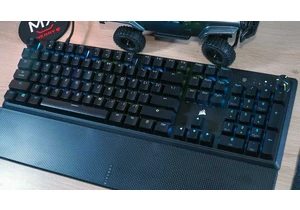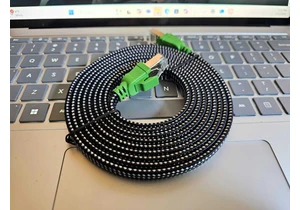The United States has reportedly been investigating reports that Nvidia GPUs have landed illegally in China to be used by Chinese LLMs like DeepSeek, and one US lawmaker will be introducing a new bill that aims to track the locations of AI chips—like the ones made by Nvidia—after they’re sold, reports Reuters and Neowin.
The smuggling of CPUs and GPUs is nothing new. PC components have often been smuggled across the ocean to countries like China and other East Asian countries for years. But with the rising power of AI and the implications of AI on technological prowess, it’s not unusual that the US government wouldn’t want that tech falling into rival hands.
The proposed legislation would oblige US authorities to develop regulations for location verification of AI chips. This would purportedly prevent cutting-edge chips and processors from being smuggled into other countries and being put into operation there without proper export licenses—a kind of kill-switch function.
Google as a role model
Former President Biden’s administration and the current Trump administration have gradually tightened export controls for technologies such as GPUs from Nvidia. Even so, around $17 billion (or 13 percent of Nvidia’s total turnover) was generated on the Chinese market.
According to Reuters, Nvidia claims it can’t continue to pursue its chips after sales are made, bu the US government disagrees. According to experts, the technology to track these computer chips is readily available, and the necessary functions are already integrated into Nvidia chips.
And with competitors like Google already use such location-tracking technology for their own AI chips in data centers as a security measure, it’s hard to believe Nvidia can’t do the same.
What would the law require?
The proposed bill still needs to be presented and voted on, but what would happen if it were passed? Here’s a quick overview.
Within six months of the law coming into force, a mechanism to verify and track the whereabouts of highly developed and export-controlled chips (or products containing them) will become mandatory. When products are diverted from their intended destinations or have been the subject of tampering attempts, every incident must be reported.
In coordination with the Department of Defense, potential security mechanisms for AI chips are to be investigated next year. In the coming years, these are to be defined and then implemented following further evaluation. This should also make export controls more flexible in order to simplify deliveries to other countries.
Jelentkezéshez jelentkezzen be
EGYÉB POSTS Ebben a csoportban

Microsoft is negotiating a more lenient approach for customers who ar


Intel has spent much of its goodwill with customers chasing down bugs

You can find a good mechanical keyboard. You can find a cheap mechani

Microsoft has finally introduced a long-awaited Windows 11 feature th

About a week ago, I decided I would never buy another Ethernet cable,

AI PCs are in vogue, especially laptops. But most consumers aren’t to
